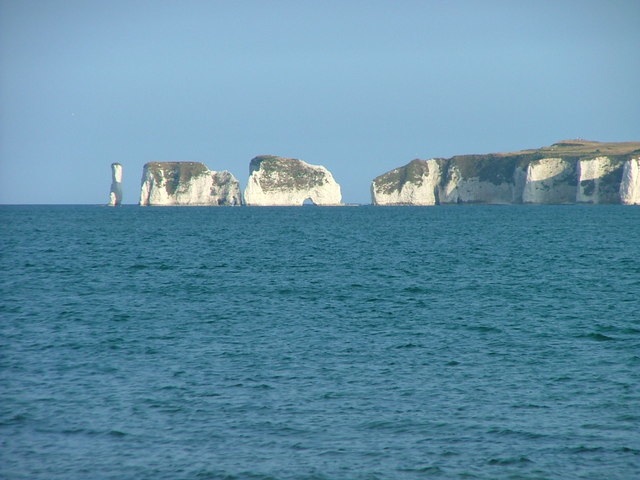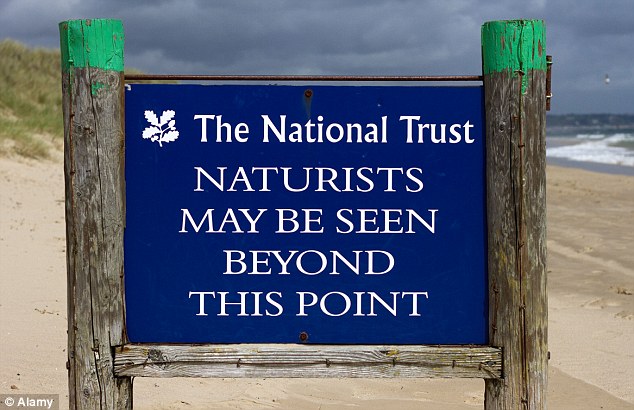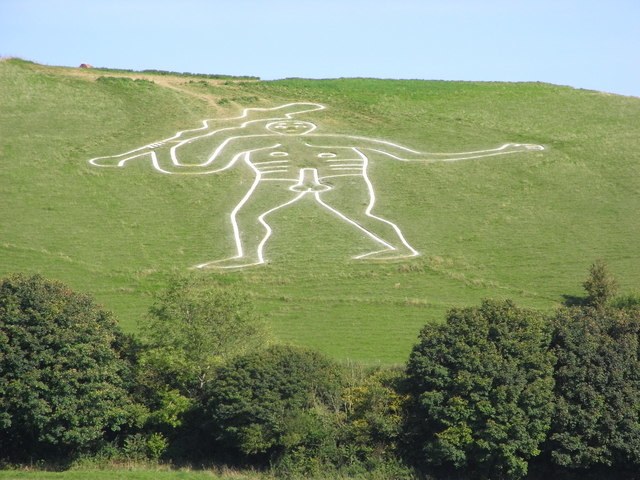One Young Fool in Dorset (5 page)
Read One Young Fool in Dorset Online
Authors: Victoria Twead
Tags: #childhood, #memoir, #1960s, #1970s, #family relationships, #dorset, #old fools

Of course Ivy was also the perfect vehicle to take
to the beach. The nearest sandy beach where kids could dig, make
sandcastles, and bathe safely, was Studland. I don’t remember my
father ever going, but I guess he was at work. We kids piled into
Ivy, along with the towels and picnic boxes. My mother would grip
the steering wheel so hard that her knuckles were snow-white and
off we’d go. The canvas roof flapped, the wind roared in our ears,
and Ivy’s engine was so loud that we had to shout to each other, or
talk in sign language. It was all part of the fun.
Looking back on it now, I’m surprised we never had
an accident as my mother’s driving was appalling. We kids didn’t
care, and as we bucked and stalled all the way to the beach, we
sang
Ten Green Bottles
at the tops of our voices.
Studland Bay is renowned for its fine sand and
expanse of sand dunes. Dorset has a great deal of precious
heathland where the adder (or viper), and the rare smooth snake
thrives. Studland’s sand dunes were a refuge for these shy snakes.
In all the years I went there, I never saw a single one.
Studland is also renowned for something else, but I
didn’t know that at the time.
My mother ignored the car park and set off into the
dunes, gloating over the fact that Ivy, with her four-wheel-drive,
could go places where standard cars couldn’t. We could navigate
over quite soft sand and my mother would crow with delight at the
thought that lesser vehicles may get stuck in the dunes. Over the
dunes we sailed, Ivy lurching dramatically, with us kids grabbing
each other in an effort not to be bounced out of the back.
Then came the search for a good place to park.
Luckily, there was heaps of parking choice, because my mother’s
aversion to reversing meant we had to find somewhere where she
could circle when it was time to leave.
Out came the towels and swimming stuff. We also
brought a bottle of homemade suntan lotion. It was a nasty
concoction, 50% cooking oil and 50% vinegar, to rub into our skins
making us smell like fish and chip shops. These were the days
before the dangers of skin cancer were known.
Weighed down with buckets, spades and beach
paraphernalia, my brother and I cantered down to the beach, leaving
my mother and older sister to follow at a more sensible pace.
Once on the beach, if one looked to the left, one
would see the Sandbanks ferry crossing back and forth. Look right,
and you’d see the Old Harry Rocks. Old Harry and his wives are
white chalk stacks and stumps, chiselled out by the ocean and time.
Poor Old Harry regularly loses wives to the waves.
 Old Harry
Old Harry
Rocks
My brother and I built sand castles, sand boats and
sand cars. We buried each other and chased in and out of the
waves.
“Picnic is ready!” called my mother.
We ate sandwiches, then my mother produced a tin
opener and big can of sliced peaches. We held out our plastic bowls
into which she tipped a few peach slices which slid around like
goldfish. Then came a dash of evaporated milk. Tinned peaches
always remind me of those days at Studland beach, and I still adore
evaporated milk.
I learned to swim at Studland. I was at that stage
when I was nearly swimming, but too nervous to lift my feet off the
ground. A complete stranger detached himself from his family group
and walked over to me.
“Put your chin in there,” he commanded, cupping his
hand.
I was so shocked, I did so.
“Now lift your legs and kick. Don’t worry, I won’t
let your head sink under water.”
I did as I was told as my family watched. I kicked
my legs - and I was swimming! I never saw the stranger again, but
he did me a big favour.
Sometimes my brother and I would explore the dunes
for a while.
“Don’t go too far!” called my mother. “And if you
see something suspicious, don’t dig it up.”
We knew what she meant. Studland had been used as a
practice firing range at one time, and it wasn’t unusual to unearth
an unexploded shell.
On one particular occasion, perhaps that year or
later, we went deep into the dunes. We were African explorers
hunting big game. Sometimes we had to drop onto all-fours to hide
from lions. Once, a giant python (well, a piece of discarded
tubing) nearly grabbed us, but we were too fast. We rolled down the
dune out of its reach. We crawled, commando-style, around a
particularly large dune, utterly silent, then froze.
In front of us lay a group of adults sunbathing.
They were a mixed bunch of men and ladies, stretched out on towels.
Their eyes were closed and apart from a hand swishing away the odd
fly, they didn’t move.
But there was something astounding about these
grown-ups that caused my brother and I to gape, then stare at each
other with round, disbelieving eyes.
4
Naked
“
T
hey’ve got no clothes on!” I mouthed to my
brother.
“They’re bare!” he whispered, his eyes out on
stalks.
We backed away, hands covering our mouths, eyes like
manhole covers. I don’t know why we were so shocked because both
our parents often wandered around in the nude at home, and there
were no locks on the bathroom door. They were totally uninhibited,
and if it was hot, they took off their clothes. To them it was
logical. We kids accepted that, but to see
other
people, in
public, without clothes on, was most unexpected.
The quickest way back to our picnic party was along
the beach. We pelted over the dunes, back to the normality of the
beach, then froze.
Everyone was naked.
Family groups, children making sandcastles. Couples
stretched out sunbathing. People paddling at the water’s edge.
Grandparents under sun shades, reading or dozing. Teenagers
throwing balls or frisbees to each other.
They were all naked.
“We’re the only ones with clothes on!”
Crimson with embarrassment and without looking left
or right, we made a dash for it. Along the beach we galloped, not
stopping until we reached our own beach party, who were decently
clothed.
“Whatever is the matter with you two?” asked our
sister.
“Back there...” I squeaked, clutching my chest and
gasping for breath.
“
Ach,
what?” asked my mother.
“Back there…”
“Yes?”
“
Nobody has got any clothes on!
”
“They’re all
bare!
” said my brother, whose
eyebrows had disappeared into his hairline.
“
Ach,
” said my mother, not in the least
concerned. “You wandered too far, that’s all. You went as far as
the naturist beach.”
“Naturist?”
“Yes, some people prefer not to wear clothes at all.
Did you not see the big blue warning signs?”

I thought hard. Yes, I’d seen the signs, but I
thought naturists were people who liked nature and wildlife, like
me. And I certainly didn’t know that for decades, in fact since the
1920s, one kilometre of the beach had been given over to nudists.
Studland is probably the best known naturist beach in Great Britain
and is run by the National Trust.
Studland was a popular beach for naturists,
naturalists and families alike, and some summer days the cars
queued for miles as families headed to the beach. Often they sat
stationary, nose to tail, engines idling, baking in the sun as they
waited to creep forward. This set my mother’s brain ticking. She
had an entrepreneurial spirit that constantly devised ways to make
extra money.
“
Ach,
I’ll go to Cash and Carry and buy
Coca-Colas,” she said. “Then I will park Ivy in a lay-by and I’ll
walk up and down the line of cars, selling Coca-Colas. I will make
a fortune! They will be so thirsty and tired of queuing, they will
definitely want to buy my drinks.
Ach,
I can’t understand
why nobody has thought of it before!”
“Are you sure you don’t need a licence?” asked my
father mildly.
“
Ach,
who would stop me selling a few cans of
drink?”
My father made her a tray that she could carry, like
cinema ice cream sellers, and the next hot weekend she loaded Ivy
with cans of Coke. With a crunching of gears and cloud of exhaust
fumes, she set off towards Studland.
I don’t know exactly what went wrong. Perhaps the
police put a stop to her activities as she had no licence. Or
perhaps nobody wanted to buy warm Coca-Cola. Whatever the reason, I
do know that she arrived home in a bad mood and with almost the
same number of cans she had taken. She stacked the unopened crates
of drinks in the garage, where they remained for years.
I once asked her if we could have one.
“Of course not,” she said. “
Ach,
that would
be drinking the profits.”
Summer was drawing to a close, although Dorset was
still packed with tourists. Hardly surprising as it is a
particularly beautiful county with the most sunshine hours in
England and more than its fair share of castles, stately homes,
stunning coastline and ancient historical sites. My mother knew how
attractive Dorset is to visitors, and predictably came up with
another money-spinner.
“The giant!” she said one day at breakfast.
“
Ja,
the giant with the massive erection.”
My father coughed. We kids had no idea what she was
talking about and carried on munching our toast, but my father
stared at her. Then he hazarded a guess.
“Are you talking about the Cerne Abbas giant?”
 The Cerne
The Cerne
Abbas Giant
“Of course! I will take the kids to Chesil beach and
we will collect suitable flat white stones. Then I will paint the
Cerne Abbas giant on the stones and ask the tourist shops to sell
them for me. They will sell like hot cakes!
Ach,
I can’t
understand why nobody has thought of it before!”
Near the village of Cerne Abbas is a particular
hill. Centuries ago, the outline of a huge, well-endowed, naked man
holding a knobbly club was carved out of the chalk hillside and can
be seen for miles. Exactly how old the figure is, nobody is
absolutely sure. It was mentioned in the 17th century but many
historians believe it is much older; perhaps Medieval, or Roman, or
Saxon, and some kind of fertility symbol.
The giant now belongs to the National Trust who
maintain it. Renowned for his remarkable, eye-popping manhood, the
Cerne Abbas giant is a huge tourist attraction. Hardly surprising
that visitors flock to see it, as it must be Britain’s most famous
phallus. The giant’s pride and joy measures some 11 metres (36
feet) high. Postcards of the giant in all his glory are the only
‘indecent’ photographs that can be sent through the English Post
Office.
“Come on! We are going to collect stones,” announced
my mother.
We kids clambered into the back of Ivy and clung on
as my mother crunched the gears and we set off.
